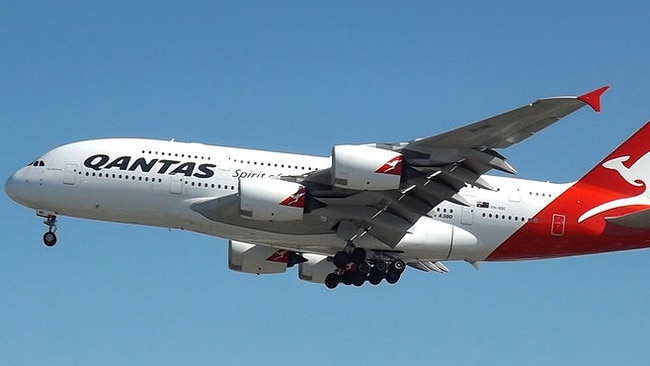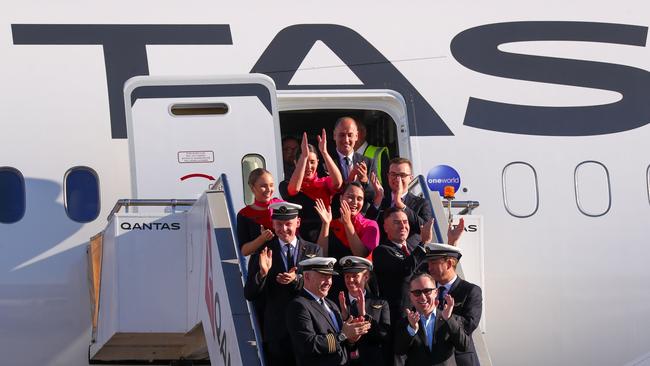Qantas vows to do better for cabin crew after harassment survey results
One in six cabin crew sexually harassed by passengers while two-thirds of female pilots felt sexist comments were common.

Qantas has vowed to do better for its cabin crew after a workplace survey found one in four had experienced sexual harassment by either a colleague or a passenger.
A total of 2400 mainline pilots and onshore cabin crew took part in the survey, conducted for Qantas by workplace transformation company Elizabeth Broderick & Co.
Female pilots reported the highest rates of sexual harassment and bullying, with some revealing they had experienced a backlash over campaigns to improve gender imbalance.
That included the suggestion they were not in their roles on merit, but because of their gender.
Two-thirds of female pilots felt sexist comments were common compared to less than half of male pilots, but all of those surveyed believed instances of explicit racial discrimination were rare.
READ MORE: Cracks to keep Qantas jets out for weeks | Qantas board quizzed on climate, diversity | Domestic travel weakness hits Qantas bottom line
About one in six cabin crew had been sexually harassed by passengers in the last 12-months, and the survey revealed crew were more likely to report this behaviour than harassment by a colleague.
Qantas People and Culture chief executive Lesley Grant said the findings on sexual harassment were largely similar to Australian national workplace averages.
“We want Qantas to be better than that,” Ms Grant said.
“Everyone deserves respect and should feel safe at work and having an honest conversation about these issues is an important step.”
She thanked all those employees who responded to the anonymous survey, and said they appreciated the candid answers provided.
“There were some very positive findings from the survey, including that around 80 per cent enjoy working at Qantas, have good relationships with workmates and believe Qantas is inclusive of people from different backgrounds,” said Ms Grant.
“Many said that attitudes towards bullying and sexual harassment had improved over the years, but it’s clear we still have work to do.”

Among the initiatives being taken by Qantas to stamp out inappropriate behaviour, included communicating what does and doesn’t constitute harassment and bullying and providing peer support to those who experience such abuse.
A confidential hotline was being set up for crew to access independent counselling services and information on how to make a formal report.
Qantas also planned to work with crew on additional “next steps” such as the role of training and how to best manage inappropriate behaviour by passengers.
The Flight Attendants Association of Australia international division secretary Teri O’Toole said the results of the survey were confronting.
“There is no place for any form of harassment in the workplace,” Ms O’Toole said.
“There are obviously concerns around passenger behaviours, and the FAAA will continue to work with Qantas to ensure that cabin crew are respected and safe in their workplace.”




To join the conversation, please log in. Don't have an account? Register
Join the conversation, you are commenting as Logout